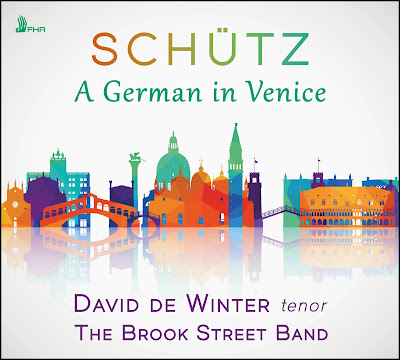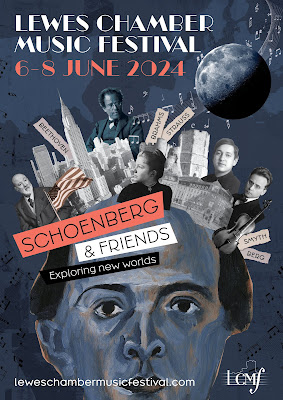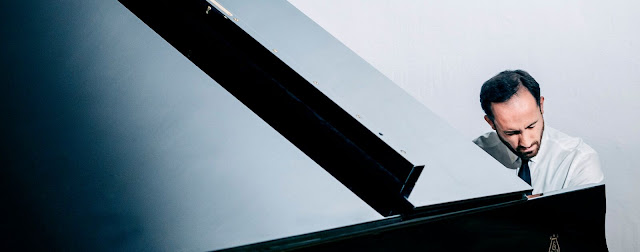 |
| Illustrations of SoundWalk by Ruby Wright |
Anna Phillips is a harpist who is currently studying for a Master’s degree at the Royal Academy of Music. She had the opportunity to take part in the Academy of St. Martin in the Fields' SoundWalk project as part of an elective with the Open Academy Department at the Royal Academy of Music.
The Connection at St. Martin’s is a day centre that supports homeless people to help rebuild their lives, through helping them on their way out of homelessness and through artistic programmes. The Academy of St. Martin in the Fields (ASMF) chamber orchestra has been running music workshops with homeless people in various venues across London, including The Connection, for 25 years. Jackie Walduck, who leads these workshops, is also a lecturer at the Royal Academy of Music. She has been leading the Academy’s partnership with this initiative, which is set to continue into the foreseeable future.
The music programmes at The Connection are open to anyone who comes to the day centre. It is an environment where participants can connect with each other and explore their own voice and creativity through music and other creative workshops.
My involvement came through the Open Academy Department, the Royal Academy of Music’s community and participation department. I was involved with the creation of a Soundwalk, an undertaking which not only marks 25 years of the ASMF working with the homeless community, but also part of the celebrations for the centenary of the orchestra’s founder, Sir Neville Marriner. The Soundwalk includes music composed by the clients from the centre, as well as the opportunity for incorporating lyrics or spoken word with the guidance of writer, Hazel Gould. This special project was recorded and will be available to listen to digitally while walking around St Martin in the Field’s and Covent Garden.
Going into this experience, I was looking forward to meeting everyone involved. My hope was to make meaningful musical contributions to the group, as well as get to know each individual through musical explorations and improvisations together. My first session at The Connection was the third session of the term. As part of this workshop, we started exploring words to create a song. It can feel vulnerable to contribute an idea, but the workshop space creates an environment where everyone can contribute in any way. There were lots of participants in this session and some lovely connections were made. For example, two participants began playing together in a call and response way, which happened organically, and it was lovely to see. Another was full of ideas, and he encouraged others too.
The next session I attended was divided into two parts: music and writing. Jackie warmed up the group with musical games, such as a call and response rhythm game and a warm-up jam. In these warm-ups you could hear how each person was feeling depending on how they would play their instrument. I enjoyed the warm-up jams because there was a space for each person to play a short musical improvisation. This reminded me why I enjoyed playing music as a child, because I was able to express myself without having to articulate it in words. Now that music is my career, it can be easier to lose sight of the playfulness and creativity of it. It has reminded me to play the harp for the child within me, who expressed herself with no self-judgement. Hazel then came to do a writing workshop to encourage lyric writing. We were split into smaller groups and each given an object. We were thinking about the story behind the object and if the object were to have feelings, what they might be. By the end of the session, we had created a verse that we spoke together; some people spoke the lyrics on their own which was a very special moment.
The last session I attended was more focused on rehearsing all our ideas for the song to be recorded for the Soundwalk in two weeks’ time. The harp seemed to act as a linchpin for the group as I was able to outline the harmony which grounded the song in this workshop. I worked with the rhythm section to ground the harmony, and then the other two groups explored drumming rhythms and a melody.
It was a wonderful experience to be a part of this project, and to witness such a welcoming space was really special. Being able to show up, be your authentic self and be able to participate in any way you like with no judgement is truly amazing. You can see the confidence it builds and the joy it brings to each person. I have been reminded that music doesn’t have to be complicated to be powerful, and everyone can write music or lyrics, especially when it comes from the heart. The only way to create in this way is to be in a safe and encouraging space, which is exactly what music at The Connection is.
The Academy of St Martin in the Fields' SoundWalk A City Full of Stories is a free, immersive audio experience part of the Marriner 100 Celebrations. To take part in the SoundWalk, visit St Martin-in-the-Fields Church, and scan the QR code.







.jpg)







%20CREDIT%20Tyler%20Whiting.jpg)









.jpg)


.jpg)









